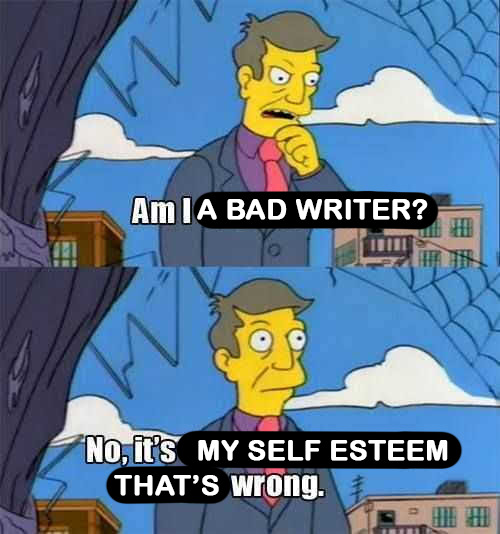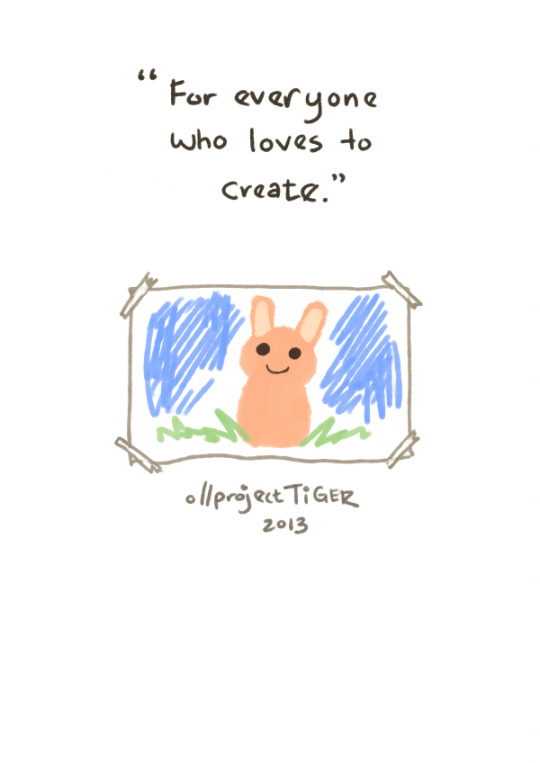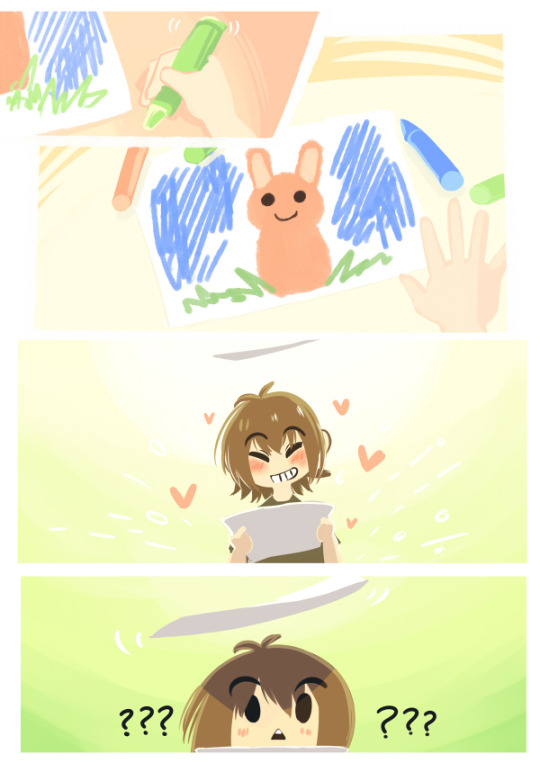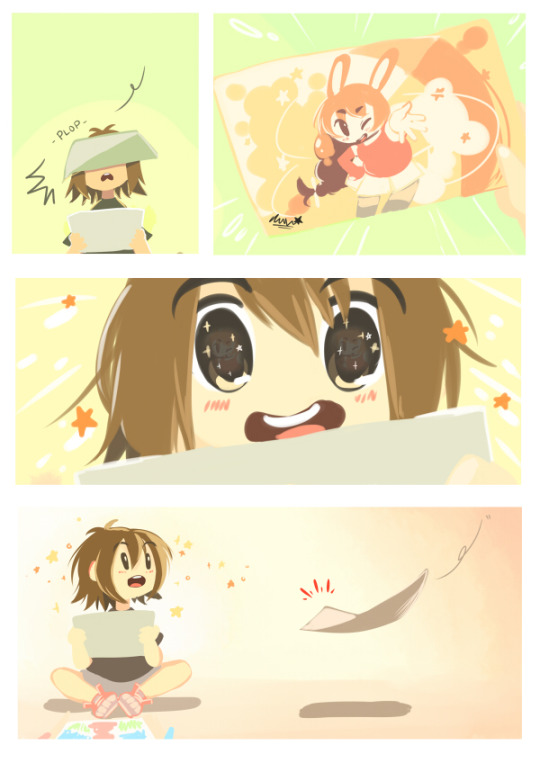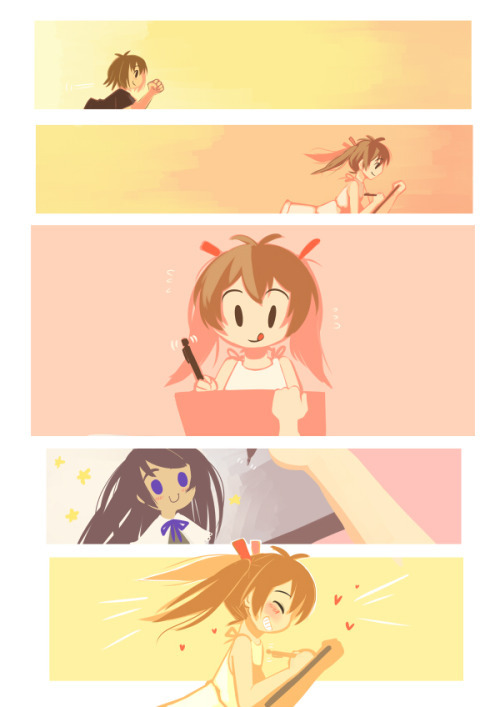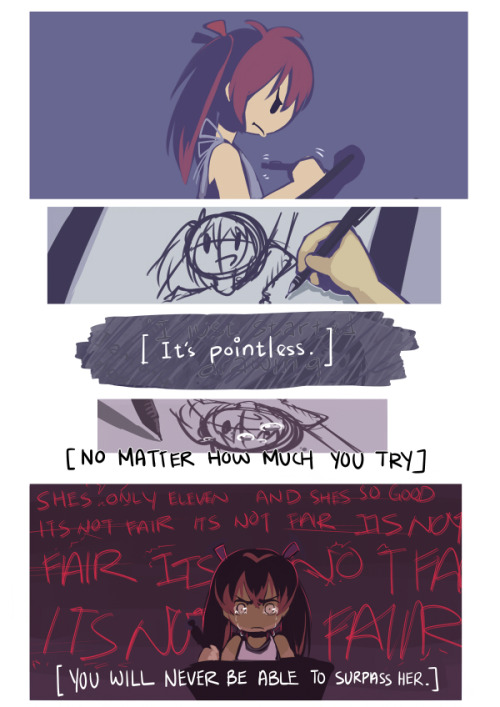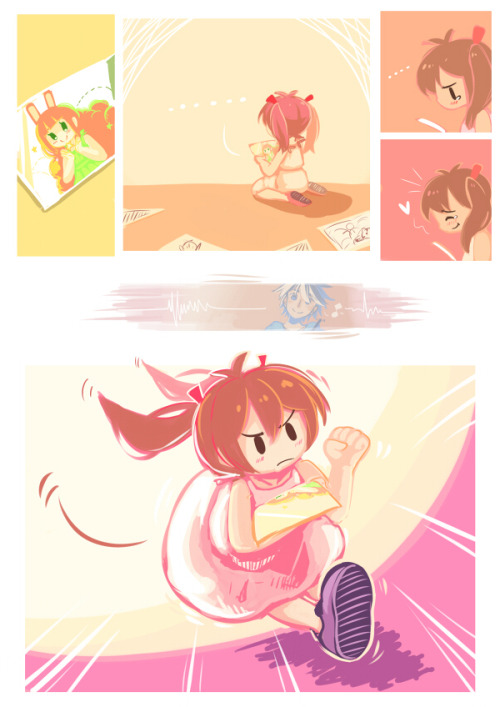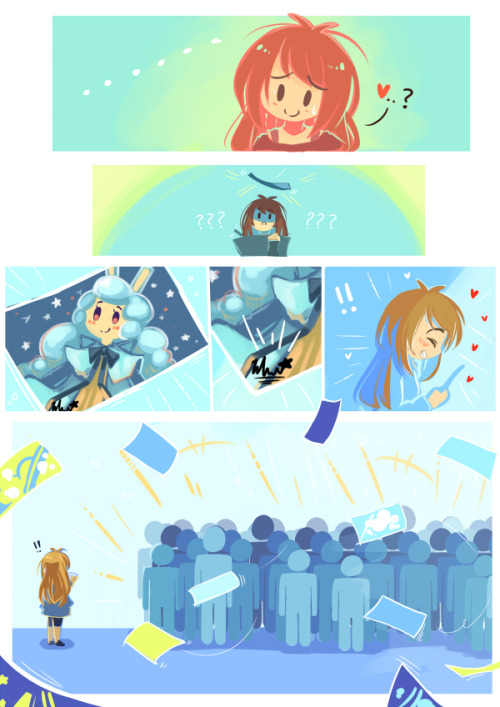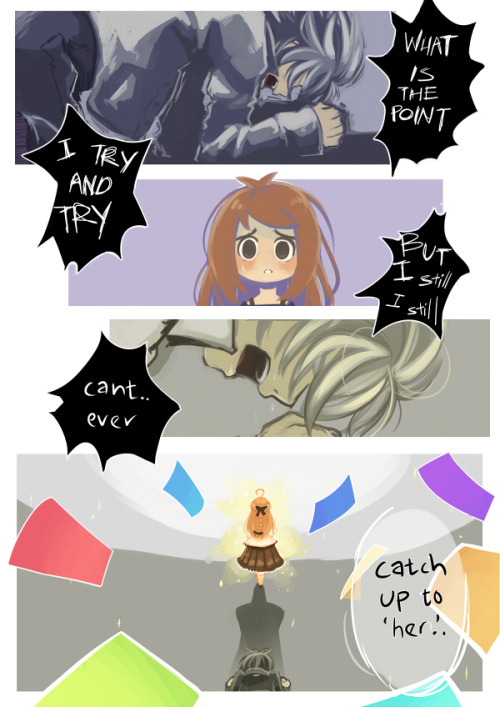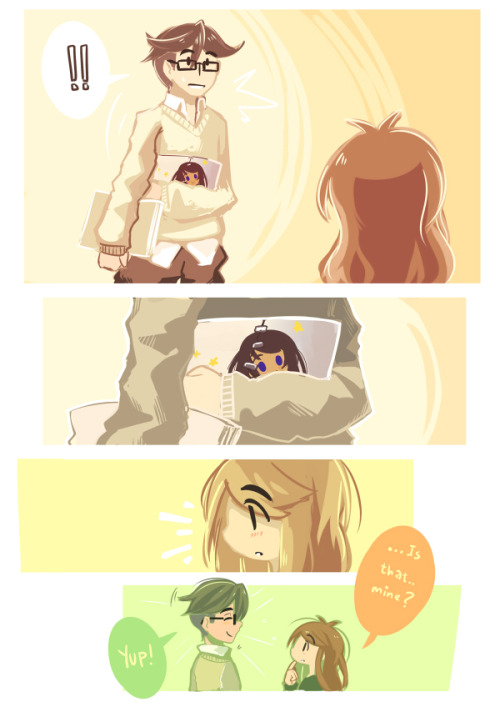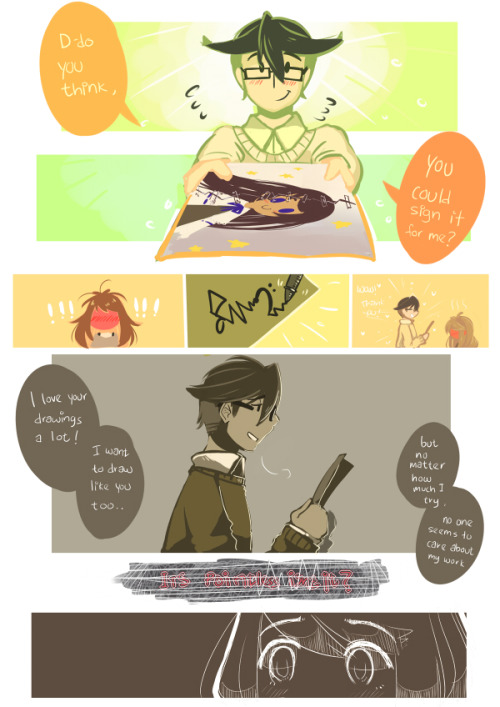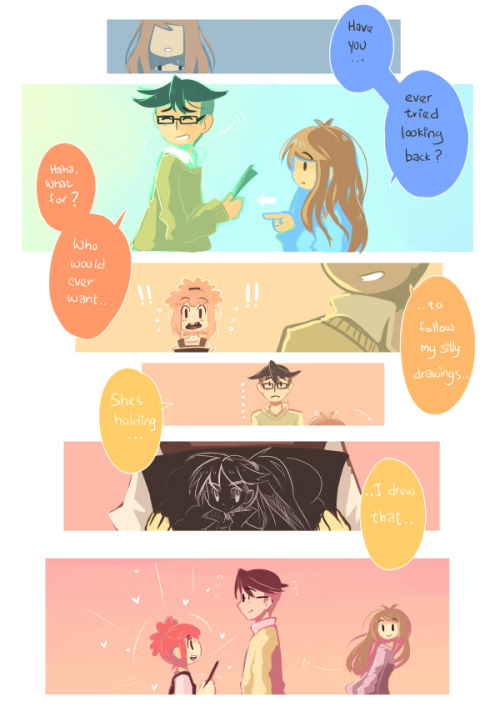Text
A Note on Writing Kind Characters
We often judge a character’s kindness the same way we would the Powerpuff Girls: are they made of sugar, spice, and everything nice? I’m here to tell you that while sweetness can be indicative of kindness, it is not synonymous with it.
Characters are not only kind because they cannot fathom being cruel. Characters can be kind because they know just how cruel they can be and opt for compassion instead.
Characters are not only kind because they think nothing of themselves and only think of others. Characters can be kind because they desperately want someone to show them the same consideration after a lifetime of manipulation and rejection.
Characters are not only kind because they love to help with every little issue. Characters can be kind because they fear what will happen if they’re not, if no one else rises and all goodness falls away - and they see the same uncertainty in the person they’re assisting.
Characters are not only kind when they keep their mouths clean and their words affable. Characters can be kind by delivering painful truths while the world would let you live with honeyed lies, but they’ll help you grieve and grow from them.
Yes, your characters can be pure, selfless, innocent angels. They can cute as a button and sweet as pie! But they can also be human: healing others instead of harming them because of the hurt they know they could bring about. Instead, these characters - flawed and damaged as they may be - choose kindness.
2K notes
·
View notes
Text
6 types of story feedback and what to do with each.

I’ve encountered a lot of feedback over the years.
Feedback that’s good, bad, or cocktail of both — from the 15 workshops I joined in college (including my time in the MFA) to my current experiences as a copywriter.
I’ve also learned how to get the most out of all that feedback. So this week I decided to share six types of story feedback and what do with each.

The Opinion is completely subjective feedback, and its purpose is to gauge what is and isn’t working for readers on a personal level. Isolated opinions offer some insight, but in general, you’ll want to pay attention to the patterns that emerge from multiple readers’ opinions.
Focus on: doubling down on the things your readers tend to like, and consider dialing back the things they don’t like.
Ignore: suggestions for phrasings, story elements, or plot directions that are purely a matter of taste and go counter to your vision.

The Misdiagnosis is feedback where the reader has noticed something wrong in your writing, but they struggle to identify the issue — so they “misdiagnose” the problem. It’s tempting to think this is a False Alarm (#6), but this type of feedback is actually very common and well intentioned, so be on the lookout!
Focus on: reverse engineering the true problem by closely reading the feedback and the passage it applies to. After identifying the real issue, work on a solution.
Ignore: their original diagnosis and any suggestions that are now irrelevant.

The Bad Remedy gets one step further than the Misdiagnosis. Here, the reader correctly identifies the problem, but the solution they provide either doesn’t solve the issue, is overly subjective (see #1), or has a negative ripple effect that the reader didn’t expect.
Focus on: determining a new solution that works for your story and style.
Ignore: any solutions that aren’t right for your story.

The Right Cure is the best kind of feedback, because it not only properly diagnoses a problem in your story, but also provides an effective solution. This feedback is easy to identify when it hits like a lightning-strike revelation — but sometimes the accuracy of the feedback or the tone of its delivery puts us on the defensive. We might try to write it off as an Opinion or False Alarm, but it’s important to accept the Right Cure when it’s offered.
Focus on: following the feedback. You can still tweak or build upon the solution if better ideas come to you; just make sure you’re still solving the problem.
Ignore: any temptation to dismiss the feedback out of pride or a feeling of being wronged due to an uncouth delivery.

The Divination is any feedback that provides the right solution to a problem, even when the reader misdiagnoses (or doesn’t try to diagnose) the problem itself. This often arises when a reader critiques mostly by feel, and while they may struggle to articulate why something is wrong, they feel something is wrong and are able to identify an effective solution. This type of feedback can often look like an Opinion since it lacks justification, but it’s always worth considering.
Focus on: identifying whether their suggestion improves the story, and if it does, implement it.
Ignore: the feedback if you’re confident it’s just an Opinion that doesn’t align with your vision for the story.

The False Alarm is feedback that tries to solve a problem that isn’t there. This type generally comes from a reader who’s distracted, reading too quickly, or trying too hard to find things to criticize (which can occasionally happen in formal critique settings like workshops, where some feel pressure to always contribute). Note, however, that this type of feedback is rare; what you think is a False Alarm is more often than not a Misdiagnosis, a Bad Remedy, or even a poorly delivered Right Cure.
Focus on: identifying whether the feedback actually is a False Alarm or something legitimate.
Ignore: the feedback, but only if you’re absolutely confident it’s a False Alarm. (If you find yourself receiving a lot of False Alarms, reflect on whether you’re dismissing too much feedback, and if you aren’t, consider looping in some new readers.)
Some Parting Rules of Thumb
Now that you have a grasp on these different types of feedback, I want to leave you with some general rules of thumb for revision:
Assume all feedback has the potential to improve your story, even if parts of it are misguided.
Know that everyone is capable of providing helpful feedback, even if they’re less experienced than you are.
Remember your vision as a writer matters, so don’t feel obligated to follow feedback that pushes your story in a direction that contradicts what you set out to create.
Never mistake the need for feedback as a shortcoming; instead, recognize it as an opportunity. Everyone needs feedback, but not everyone is willing to seek it out.
Good luck, and good writing, everybody! I hope this helps you sift through the feedback on your next story.
— — —
You have stories worth telling; I want to help you tell them well. For tips on how to hone your craft and nurture meaningful stories, follow my blog.
4K notes
·
View notes
Text
my blog is, and always will be, a safe place for people who are not confident in their english speaking abilities. you will never be judged or mocked here.
122K notes
·
View notes
Text



For reference, this is what she’s talking about :


In conclusion: Fanfic is important, there’s nothing wrong with writing or enjoying it and the cast and crew of Good Omens are a gift.
102K notes
·
View notes
Text
fuck it i’m finally making this post because goddamn i wish i saw it when i was younger
to the minors who follow me:
if anyone significantly older than you approaches you on the internet or in real life in a romantic or sexual way, do. not. communicate with them. the second it becomes anything other than respectful or friendly in any way or if they make you even slightly uncomfortable, block. them. cut them out of your life. they are not worth it and they will hurt you. run. protect yourself. and be safe.
68K notes
·
View notes
Photo
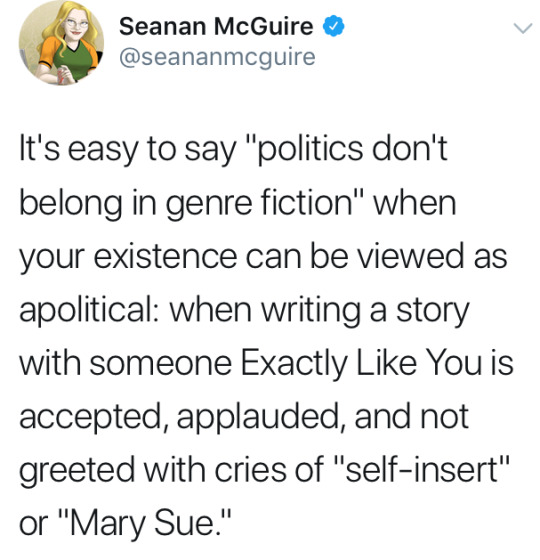
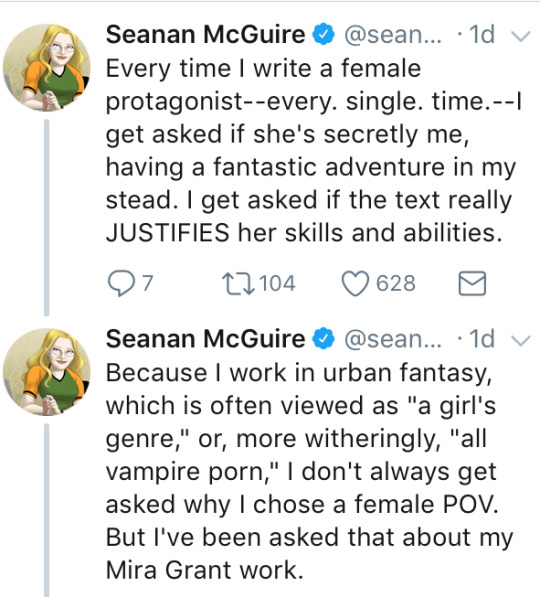
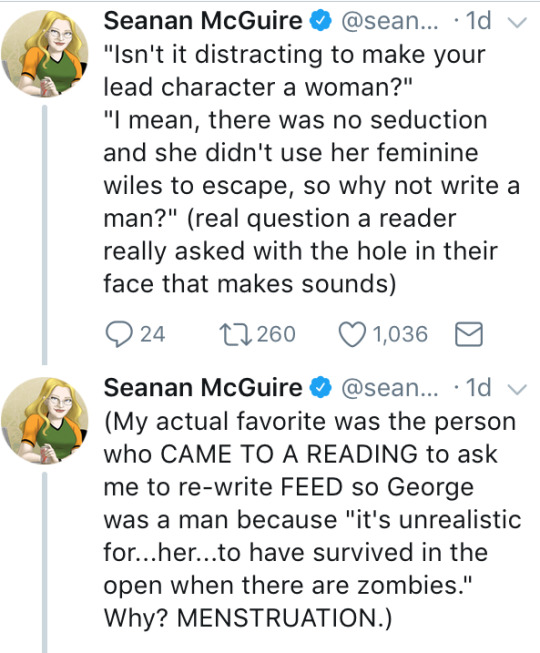
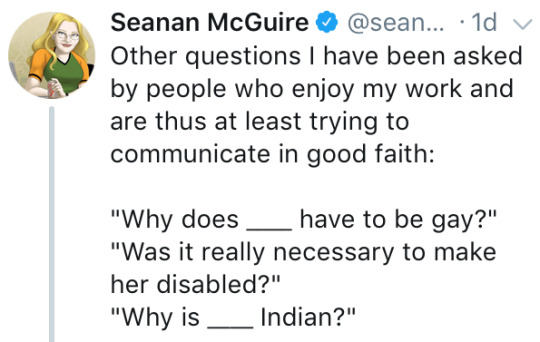
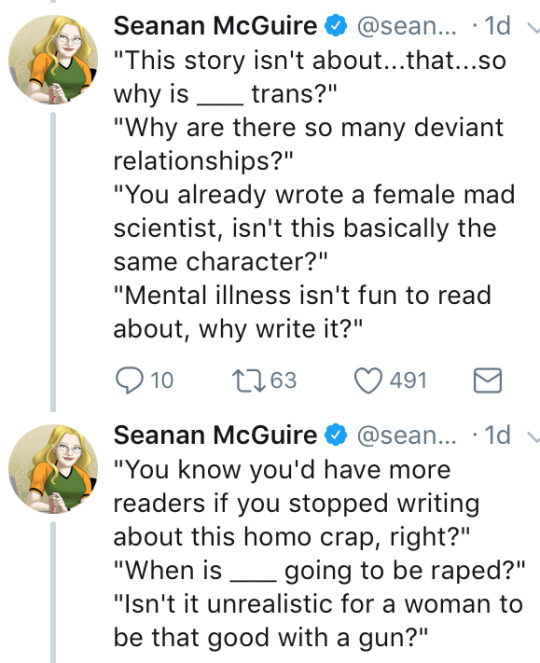

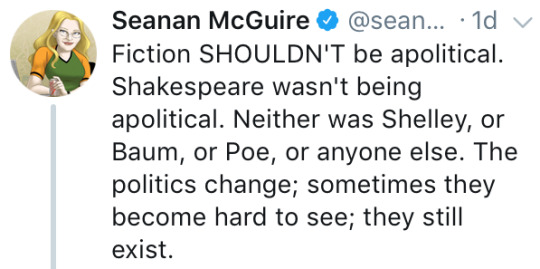
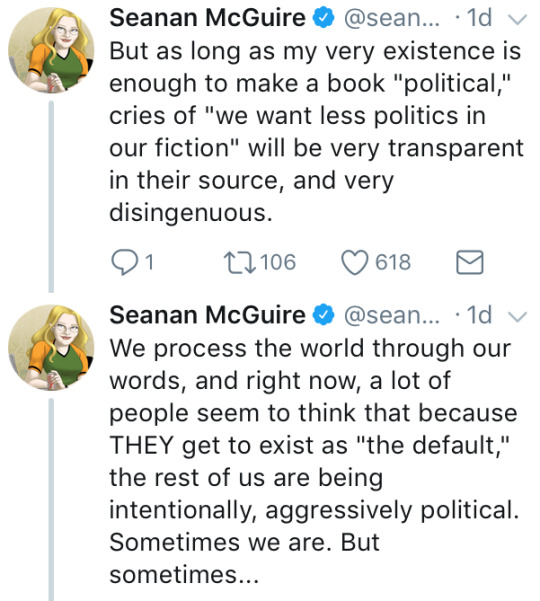
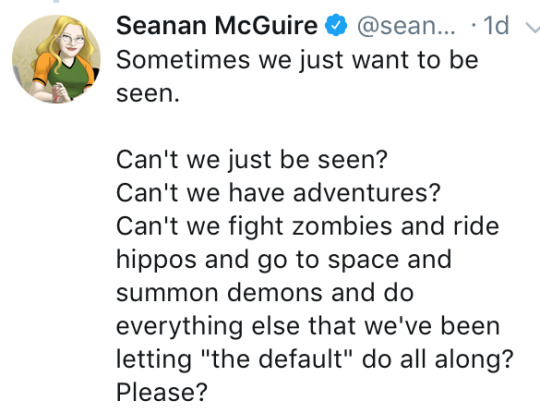
roger that
115K notes
·
View notes
Text
we’re going to have to call smut ‘lemons’ again, aren’t we?
382K notes
·
View notes
Text
Pixar’s 22 Rules for Writing




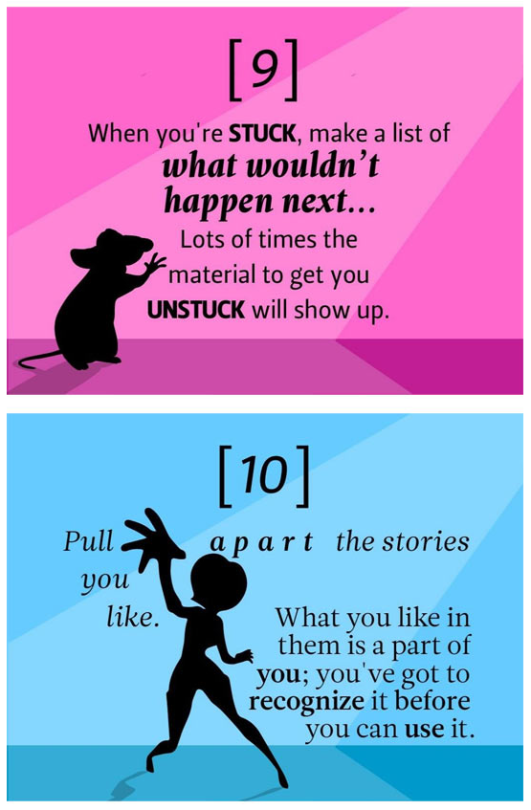

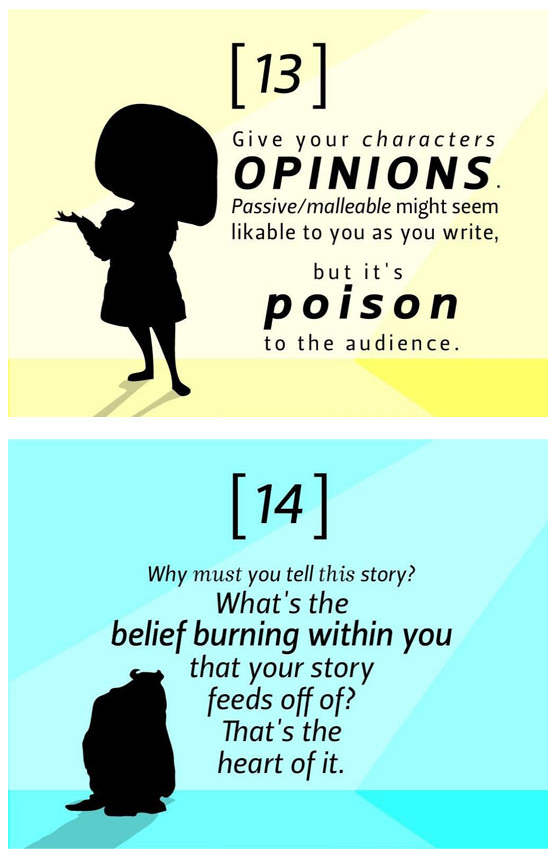
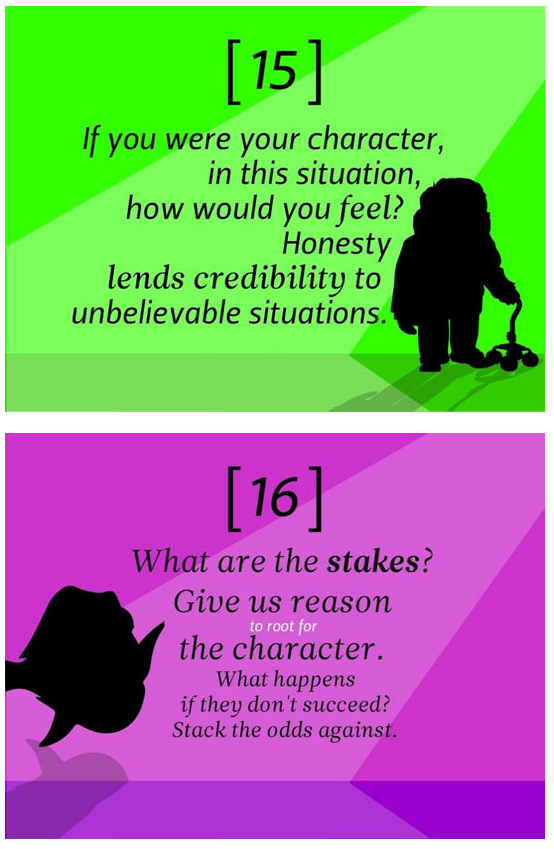
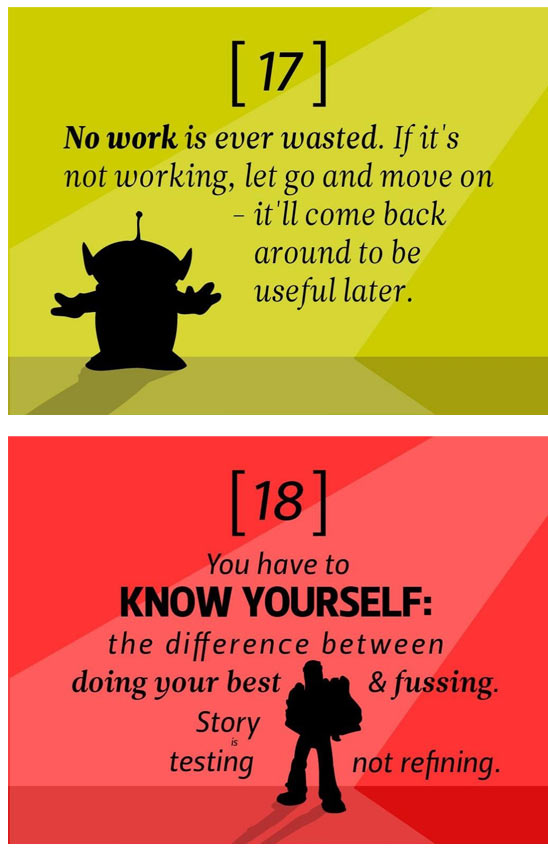


61K notes
·
View notes
Text
REBLOG IF YOU DON’T MIND WRITERS TAKING TIME OFF FOR THEIR MENTAL HEALTH
81K notes
·
View notes
Text
PRO WRITING TIP:
your narrator’s perspective will limit your descriptions
if your narrator is a normal 18 yr old girl in high school, living in a conventional town with a conventional life but is then, within your novel, thrown in conflict that has to do with a murder mystery where weapons or guns are involved, etc., then
1. don’t turn her into a sherlock
don’t give your narrator random facts they ‘just know’ off the top of their head in order to solve a problem, no matter how big the mystery was. the exception to this is if the clues had a direct connection to something in their past. if you’re stretching yourself while connecting the dots to solve the big mystery in your novel, chances are your readers will find it cheap or far-fetched.
2. don’t describe weapons with their actual names, such as a Push Dagger or a Ka-Bar combat knife. describe it the way you yourself would if you hadn’t done any research.
you wouldn’t see a OKC-3S bayonet, you’d see a dull-gray blade situated on a brown-leathered handle that looked like it came right out of an Indiana Jones movie.
3. in a fight scene, make it realistic by placing yourself in the situation. would you use an suave upper cut and turn into a female, teen Bruce Lee to maneuver your way out of the brawl?
no. you’d be too scared to move. you’d be slapping and struggling your way out.
nonetheless, always remember to do your research (don’t skimp out on this and don’t procrastinate by opening another tab!) and happy writing! x
2K notes
·
View notes
Text
Becoming a writer was actually a super stupid mistake on my part because every time I'm like "okay, in this chapter A needs to happen, but mostly X should be implied, and make sure to explain how Y and B are related while also how they contrast, but squeeze Z in there somehow without distracting from the importance of A or X"
and like....that's the kind of assignment description I'd get in school that would make me cry in front of a blank screen for several hours. i mean, a chapterbook is like a collection of essays and I've gone and told myself to write 100 of them at 3k each and like an absolute dunce I'm actually doing it. for fun
i apologize to all my teachers because even the worst of them wouldn't have done this to me
743 notes
·
View notes
Text
“You’re Not a Good Writer.”
I once received a DM comprised of just that sentence. Nothing else. No constructive criticism or any reason as to why this person clearly agreed with my own view of myself.
For someone who has never told anyone in their real life that they write anything, reading something like this from an anonymous user only solidified in my mind the fact that this person was right.
I’m not a good writer.
After an embarrassing amount of minutes passed, in which I thought about deleting every story I ever posted, I decided to delete the message instead. Unfortunately, that didn’t mean I could delete the feelings it caused or change the fact that I’m not a good writer.
Two weeks went by and I didn’t write anything, let alone post. Then I received a comment on a story I had posted three years prior, one I’d written after a death in our family. The comment read, “Thank you for sharing this heartfelt story. I really needed this. I just lost my mom and this really got me today.”
I stopped thinking about being a good writer after that. I thought instead, “what if I had deleted my stories and that one person three years later hadn’t read it that day?”
Here’s what I realized: no one is a good writer.
Good means to be approved of, but stories aren’t created from approval. They’re built from life experiences, feelings, and emotions Therefore, the impact of anyone’s story isn’t good or bad. It’s a million other things.
Heartfelt.
Sad.
Funny.
Inspiring.
Romantic.
So to all the story writers out there, hold your head up, write what is in your heart, and never doubt that there isn’t at least one person out there that needs to read your story.
So, no.
We’re not good writers, but why would we want to be?
55K notes
·
View notes
Photo








Actors of color often get typecast. Two photographers asked them to depict their dream roles instead.
How Hollywood Sees Me … And How I Want to Be Seen
#char inspo#male char inspo#fem char inspo#asian char inspo#latine char inspo#black char inspo#woc#moc#poc
110K notes
·
View notes
